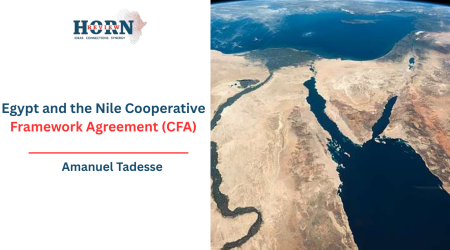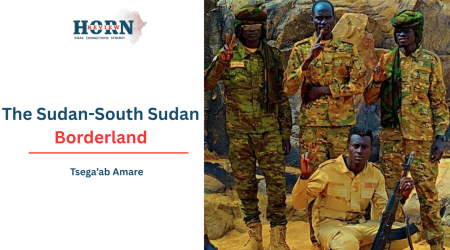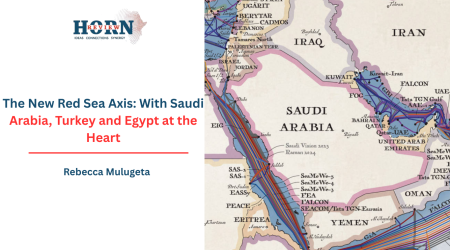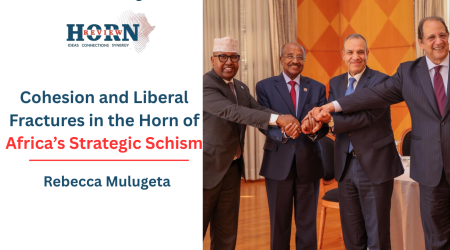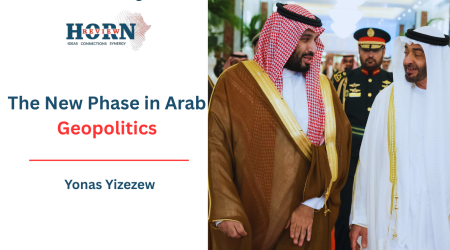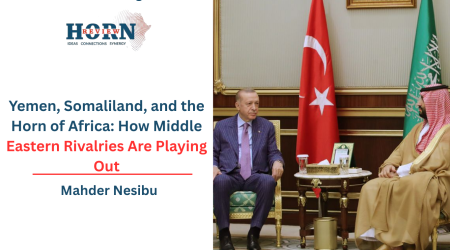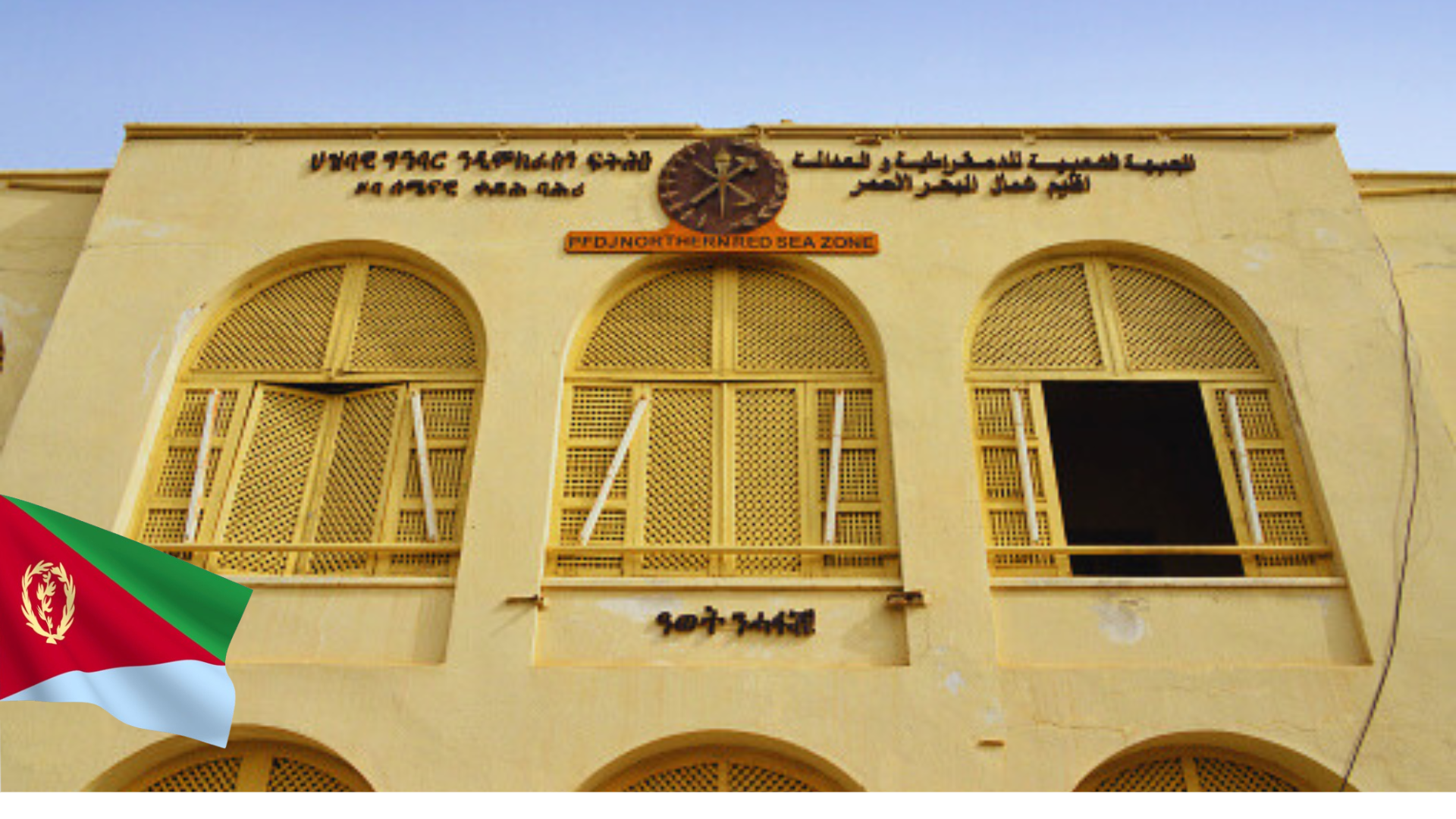
14
Jul
PFDJ’s Psychological Tyranny: The Ideological Colonization of the Eritrean Mind
If indoctrination builds loyalty, fear cements obedience
Political power is not merely a matter of guns and laws; it is a contest for the human mind. In Eritrea, the ruling party, Shabia, officially the People’s Front for Democracy and Justice (PFDJ), has mastered this contest, wielding psychological tools to entrench its authoritarian rule since day one. Under President Isaias Afwerki, Shabia has crafted a system that blends indoctrination, fear, and emotional manipulation to dominate the Eritrean psyche. Those tactics have inflicted deep psychological wounds on the population, driving mass emigration and stifling the nation’s potential, especially among Eritrean youth.
To deeply understand the PFDJ’s psychological playbook, we must first trace it back to its roots. Emerging from the Eritrean People’s Liberation Front (EPLF), Shabia led a grueling war against successive Ethiopian regimes from the imperial regime to the military junta (DERG) until Eritrea’s secession in 1991, in a war with the Tigray People’s Liberation Front (TPLF). Though TPLF and the EPLF (now Shabia/PFDJ) were once allies in the fight against the DERG, sharing a common goal to overthrow the regime and establish new governments in Ethiopia and Eritrea, despite their shared past, their relationship deteriorated rapidly and later became antagonistic.
During the Ethiopian Civil War, the TPLF and Shabia coordinated efforts as part of the broader rebellion against the DERG. May 28, 1991, marked the end of a civil war that had raged since 1974, remembered as the defeat of the Marxist-Leninist military junta by the rebel coalition. Following the collapse of the DERG, the TPLF and EPLF’s long-term visions diverged: while the TPLF established a transitional government in Ethiopia, the EPLF formed a provisional government in Eritrea. This power shift bred friction, as the EPLF felt the TPLF was seeking undue influence in Eritrean affairs, and the TPLF perceived the EPLF as having a sense of entitlement, disregarding Ethiopian interests.
After the EPRDF’s victory in 1991, tensions and conflict arose between the two groups. A border dispute escalated into a full-blown war from 1998 to 2000, and even after the war ended, relations remained strained. Shabia narrates the military triumph as a collective will and has since weaponized it as a psychological tool on the Eritrean people.
After secession, the party suspended the constitution, abolished opposition, and imposed indefinite national service requiring citizens to serve in military or civil roles, often for decades, without Eritreans’ consent. At Sawa, national service begins as a duty to the regime; young Eritreans are drilled into this system. Indefinite national service is more than a policy; it is a theft of dreams. Eritreans are trapped in roles they did not choose, their lives dictated by the state.
By making the duration of service arbitrary and open-ended, the system destroys young people’s ability to plan their future, fostering hopelessness, powerlessness, and dependency on the state. This causes a mass exodus of Eritreans, who risk perilous journeys to seek asylum. The national service system is not merely a source of cheap labor or a means of keeping a large force. It is a mechanism for social engineering and psychological conditioning. The party views national service, particularly initial training, as a tool for socializing Eritrean youth who did not experience the liberation struggle into what it terms a “culture of sacrifice” and unwavering loyalty to the state.
Today, Eritrea stands as a one-party state, with Afwerki’s rule unchallenged for over thirty years. This historical backdrop is not mere context; it is the foundation of Shabia’s psychological dominance. The psychological architecture of Eritrean authoritarianism is inextricably linked to the persona and absolute power of its longstanding leader, President Isaias Afwerki. His intense paranoia leads him to see enemies everywhere.
In most authoritarian regimes around the world, leaders who hold power indefinitely employ cults of personality to consolidate their rule, demanding personal fealty from the population and state officials. They use overt symbols of a personality cult, such as ubiquitous statues or portraits on currency. These tools are common in dictatorships, but in Eritrea, the PFDJ’s political platform itself is based on President Afwerki’s personality cult and the enduring narrative of the liberation struggle, even though there is no symbolic presence of Afwerki’s image on everyday items.
Eritrea under Shabia is a surveillance state. From classrooms to military camps, Shabia shapes how Eritreans see themselves. The state monopolizes education and media; independent media is banned, and internet access is among the lowest in the world. Dissent invites swift retribution, with thousands of political prisoners in secret jails subject to torture, starvation, prolonged detention, and unexplained deaths. This fear is a daily reality, creating a culture of silence. The regime demands obedience and inspires devotion. Propaganda lionizes the “martyrs” of the independence war, framing their sacrifices as a debt today’s citizens must repay through service. Eritrea’s youth future is a silent referendum on Shabia’s rule, binding many to its cause.
Shabia’s propaganda paints Eritrea as a proud, self-reliant state defying Western imperialism. But the reality is empty markets, power cuts, and repression that tell a different story. For many, the only resolution is to escape a choice that has turned Eritrea into a diaspora nation. The system is punishing more than protecting. Maybe Shabia’s defenders argue its iron fist brings stability; unlike Somalia or South Sudan, the regime has avoided civil war. They say this is a testament to its control, or they frame its policies as a culturally rooted collective ethos that Western critics misjudge. But these claims falter under scrutiny: stability built on fear and exodus is a hollow victory if its brightest minds flee.
Shabia’s rule is a case study in political psychology: a regime that thrives by controlling how its people think and feel. Indoctrination binds them to its mythos, fear silences their doubts, and emotion fuels their loyalty. Yet this control is a Pyrrhic victory, purchased with the despair of a nation. Eritrea’s future hinges on whether its people can reclaim their minds and their country from Shabia’s grip. For now, the regime endures as a testament to the power of psychology in politics. But as the exodus grows and the trauma festers, one wonders: how long can a nation survive when its soul is held hostage?
The psychological damage inflicted by the PFDJ regime is not confined to the direct victims of its most brutal forms of repression. The entire generation that has come of age under the shadow of the indefinite national service system can be considered psychologically scarred, whether through direct participation, the fear of conscription, or the impact on their families and communities.
The concept of “generational transmission of a decisive past” suggests that even youth in the diaspora, born outside Eritrea, are affected by their parents’ traumatic experiences and narratives of suffering and struggle. Pervasive fear, uncertainty, and lack of opportunity create collective trauma. The mass exodus of youth is an act of resistance but also represents a “lost generation” in terms of demographic and psychological well-being and the capacity to build a functioning society.
Healing these deep wounds will be a monumental long-term task. It will require more than political and institutional change; it will demand extensive, culturally sensitive psychosocial support and national reconciliation to address legacies of trauma and mistrust.
The enduring authoritarianism of the People’s Front for Democracy and Justice (PFDJ) in Eritrea is not merely a product of physical coercion but is critically sustained by a sophisticated and deeply embedded architecture of psychological manipulation. The decades of PFDJ rule and its associated “mind games” have inflicted profound and lingering psychological scars on the Eritrean people, both individually and collectively. The prevalence of anxiety, depression, and other trauma-related disorders among those who have endured detention, torture, or the brutalities of indefinite national service is a stark testament to this damage. Beyond these direct victims, a pervasive culture of fear, self-censorship, and eroded agency has taken root within the broader society.
Moving forward, a multi-pronged approach is necessary to counter the PFDJ’s psychological control, foster resilience among Eritreans, and support aspirations for a democratic future. The long-term path to psychological liberation from decades of authoritarian conditioning will involve a conscious effort to reclaim individual agency, cultivate critical thinking skills, and painstakingly rebuild interpersonal and societal trust.
This process can draw strength from positive aspects of Eritrean identity and culture, such as community spirit, perseverance, and commitment to justice, while rejecting their co-optation by the regime.
While the PFDJ’s “mind games” have inflicted deep and enduring damage on the Eritrean psyche and society, the remarkable resilience of the Eritrean spirit, particularly evident in the diaspora’s persistent struggle for freedom, dignity, and truth, offers a glimmer of hope. The eventual dismantling of this oppressive psychological edifice, though a daunting task, remains a crucial prerequisite for the dawn of a more democratic, just, and humane future for Eritrea.
By Surafel Tesfaye,Researcher,Horn Review

